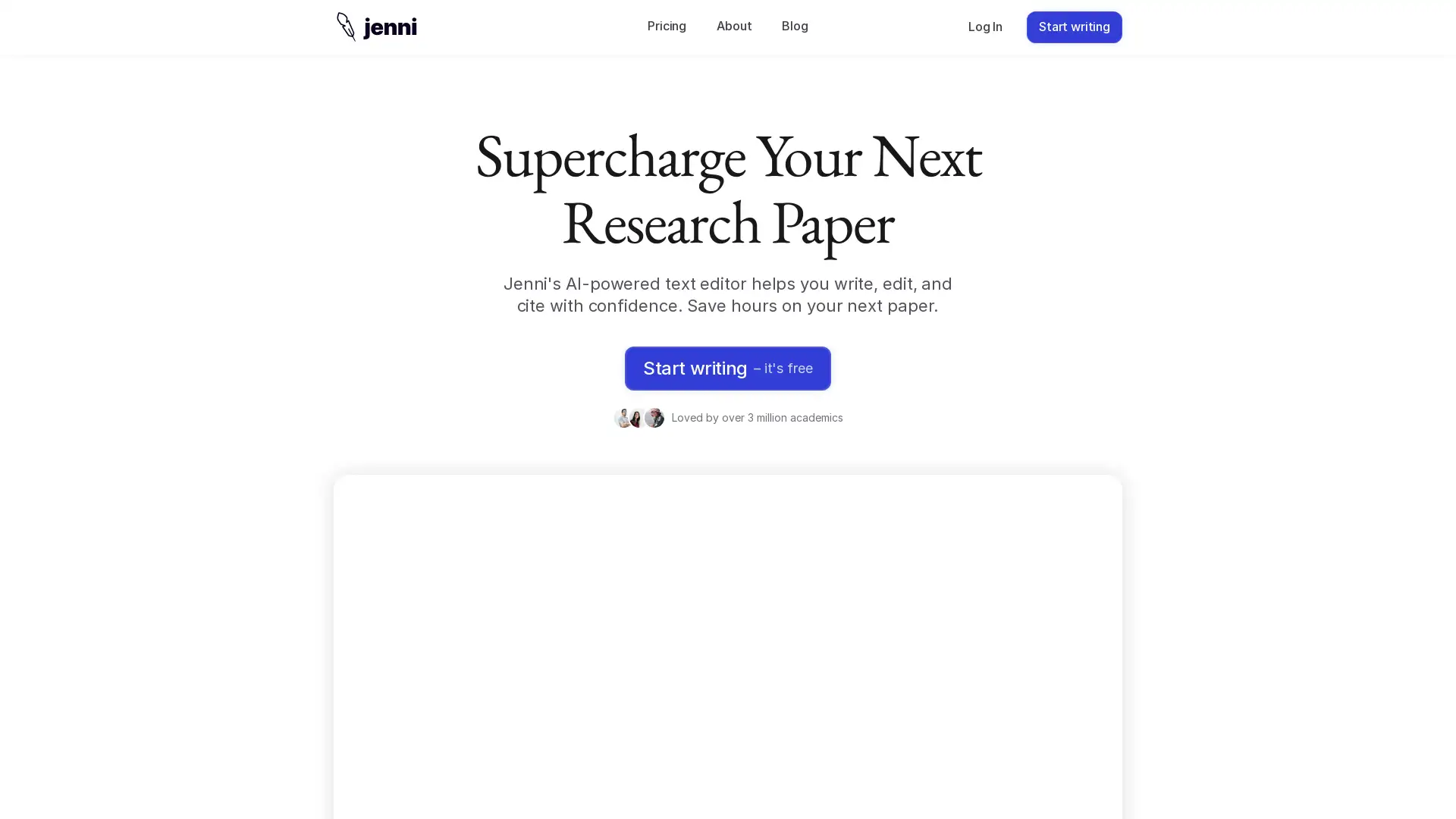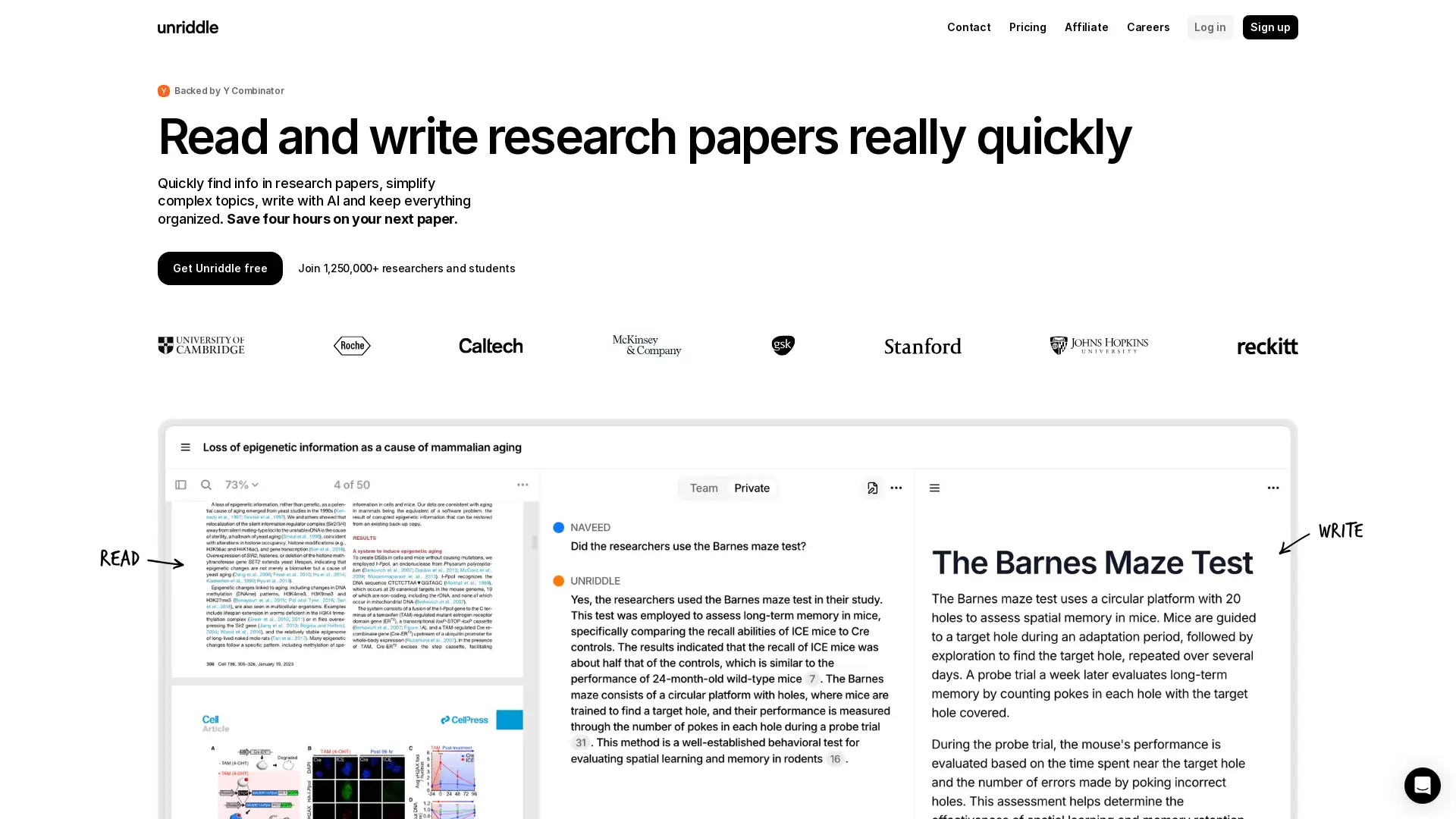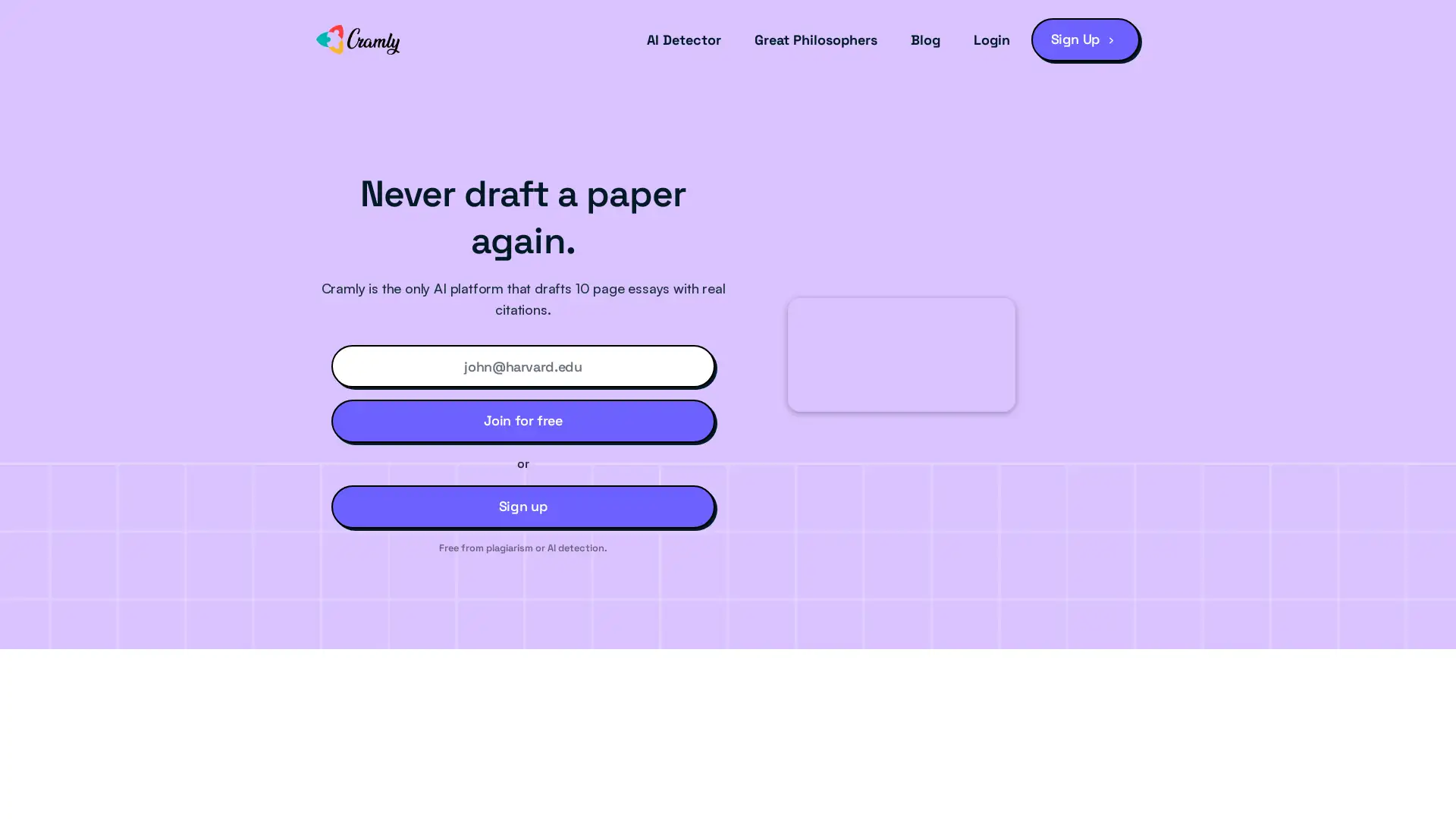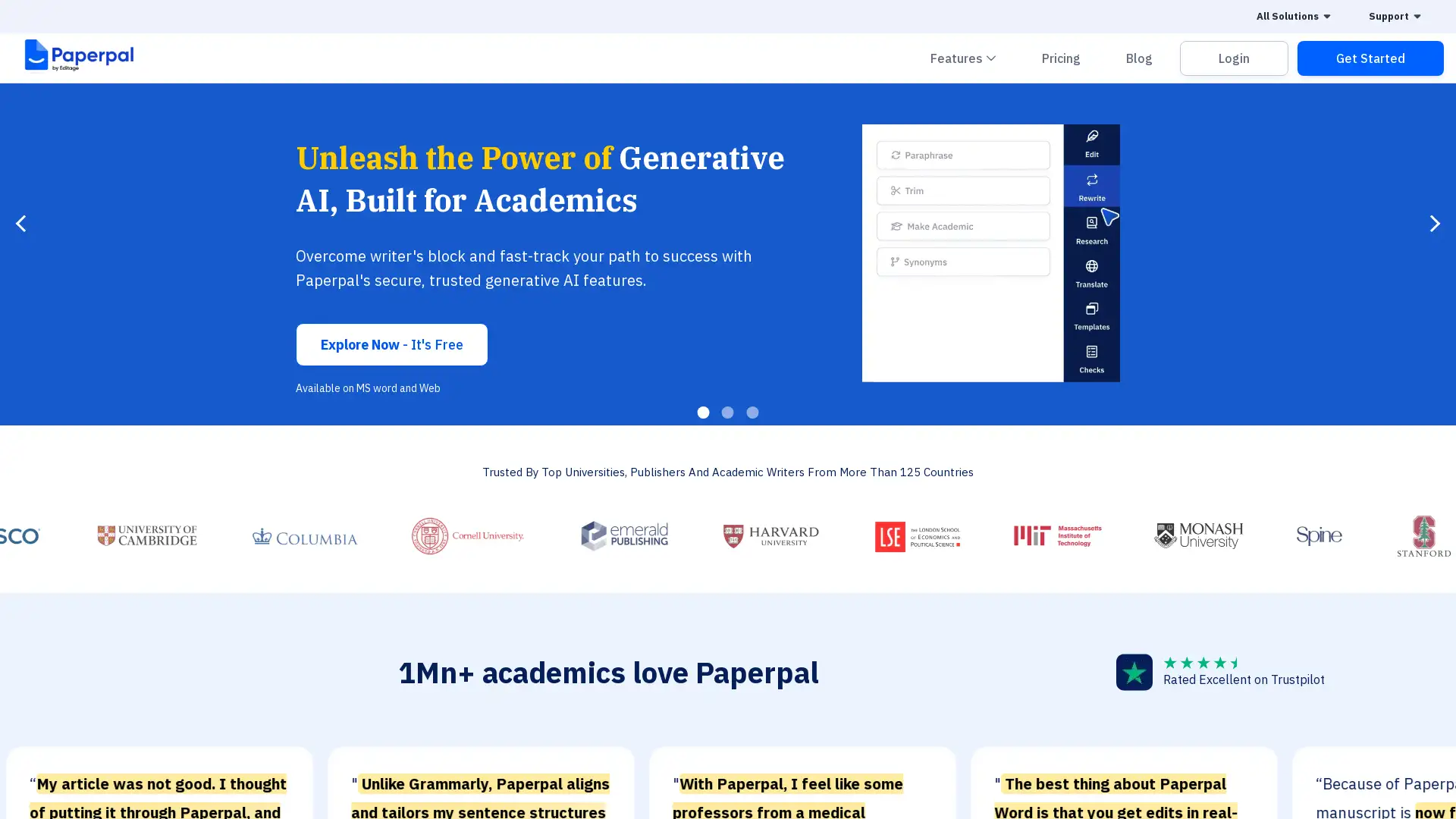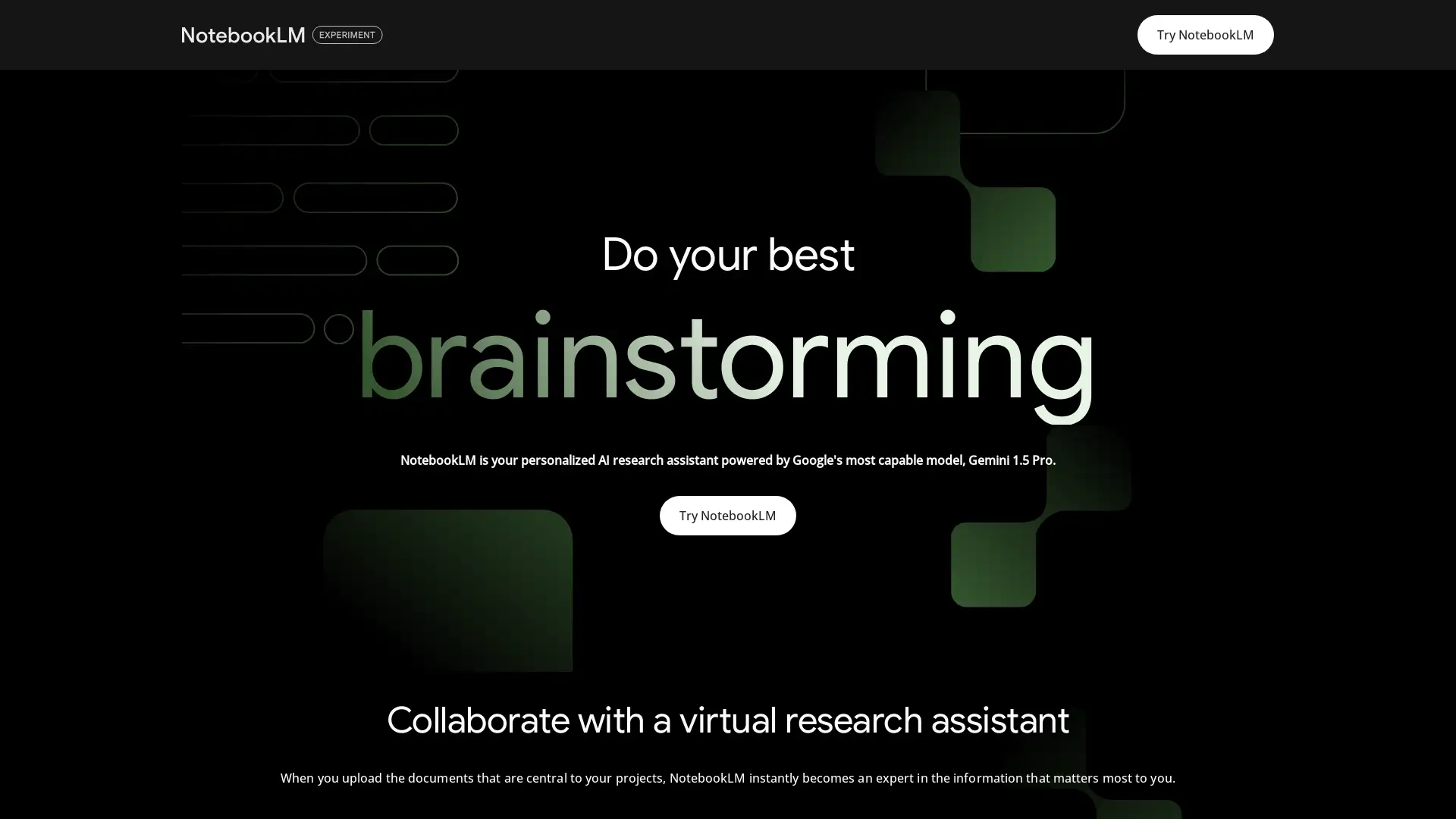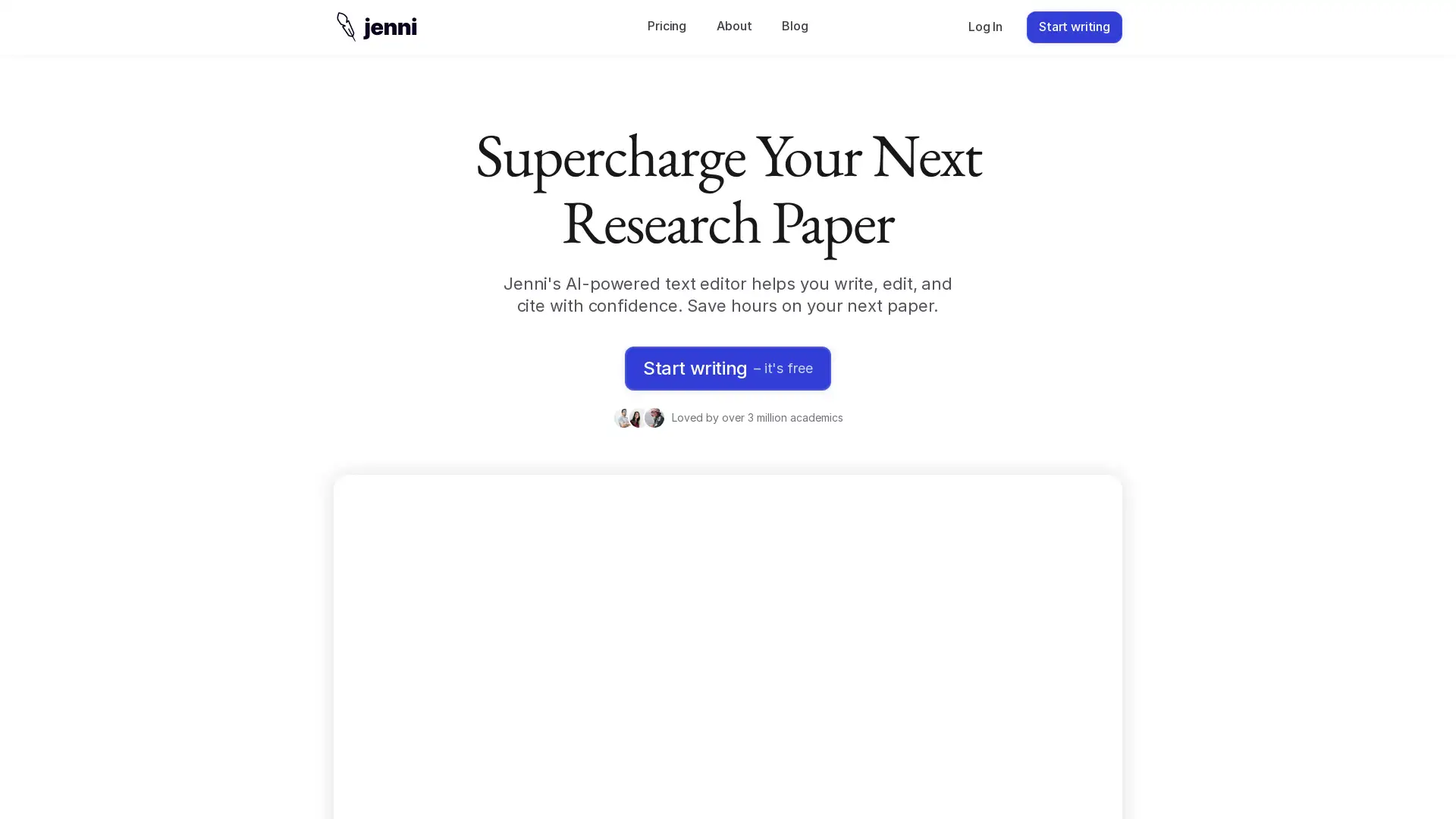Best 8 AI Tools for Research Assistant in 2024
Jenni AI, Unriddle AI, Cramly AI, Poppy AI, Paperpal, Notebooklm, Liner AI, Jenni AI are among the best paid and free Research Assistant tools available.
Overview of AI Tools for Research Assistant
AI tools labeled as Research Assistants are intelligent software solutions designed to assist users in various research-related tasks. These tools are tailored to enhance productivity by streamlining processes such as data collection, analysis, document preparation, and personalized learning. By leveraging AI's capabilities, Research Assistants can help with academic writing, document analysis, and even complex problem-solving, providing users with fast, efficient, and accurate results.
Key Features of Research Assistant AI Tools
AI-powered Research Assistant tools offer unique capabilities, including the ability to analyze large datasets quickly, generate summaries from documents, assist with academic writing, and even create visual content. These tools can be highly customized, ranging from simple, user-friendly interfaces for beginners to advanced functions for experienced researchers. Features like AI-driven language support, web search integration, image creation, and document analysis set these tools apart, making them essential for efficient research work.
Who Benefits from Research Assistant AI Tools?
The target audience for AI Research Assistant tools includes students, educators, researchers, writers, and professionals across different fields. These tools cater to novices with easy-to-use interfaces, while also offering customizable features for users with programming skills. Whether you're conducting a literature review, analyzing research papers, or drafting academic articles, AI tools can significantly enhance your workflow.
Further Insights into AI Research Assistant Tools
AI Research Assistant tools provide a flexible and user-friendly interface, allowing users to manage complex tasks effortlessly. These tools can integrate with existing systems, adapt to user preferences, and evolve based on new research methodologies. They offer versatile applications across sectors, such as law, healthcare, and business, where research plays a critical role. Furthermore, they help improve accuracy, reduce workload, and enhance the learning curve, making them indispensable in modern research environments.
